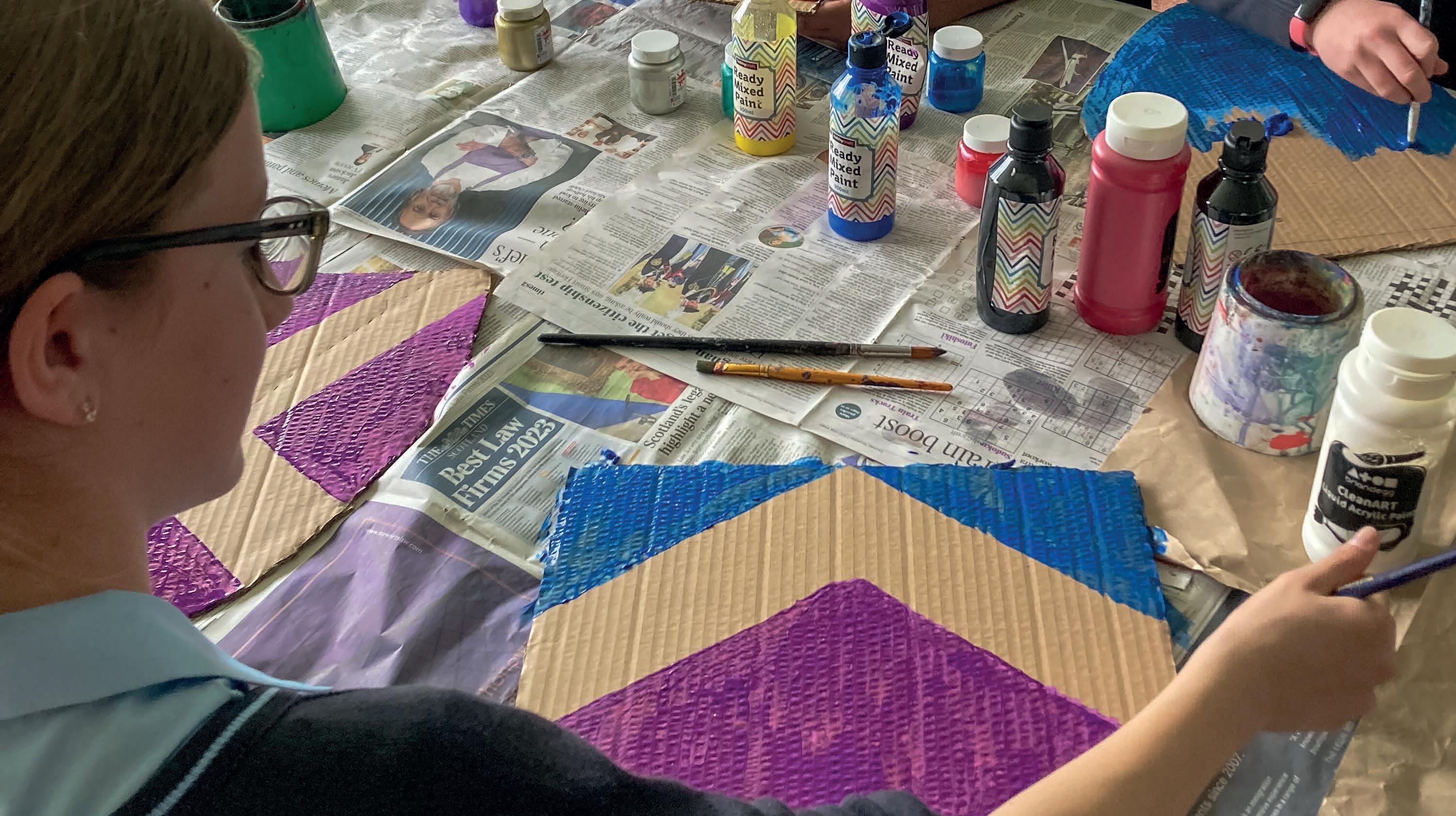
3 minute read
and Geography Humanities:Analytical Skills and Critical Thinking
We take a look back through the Summer Term of learning in History and Geography. Subjects that deepen our world view, develop critical skills for learning and open up a wide range of career opportunities.
Year 7 – Medieval Knights
Advertisement
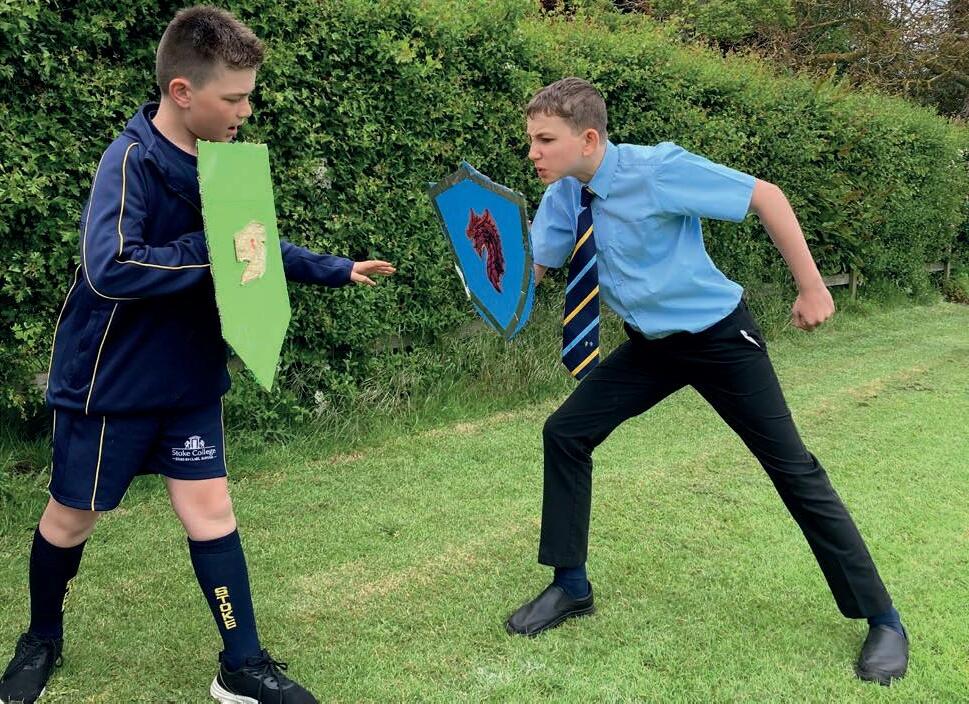
Since Easter Year 7 have been learning all about Medieval Knights. From the stages of training a medieval person had to go through to become one, to the Code of Chivalry they had to live by, moving onto the tournaments they participated in and the armour they wore. We finished the term by learning about how knights chose their coats of arms to represent themselves. After planning out their own designs, Year 7 brought their creations to life turning them into shields. Why not ask them what the colours and symbol they have chosen says about them? Perhaps you have a brave warrior, or a trustworthy soul in your home!
Year 8 - Suffragettes
“Words not deeds” are the words Year 8 have been studying this last term. We began with looking at what life was like for Victorian women compared to modern day and then moving through to the Suffrage movement at the beginning of the 20th century together with the campaign for equal rights for women, including the right to vote. The class got to grips with multiple viewpoints exploring why some women did not want the vote (Queen Victoria) and why many men helped women on their journey to more equal rights (Manchester Men’s League of Women’s Suffrage). We hope that Year 8 have taken away from this topic that whether you are a homemaker, go out to work, or a combination of the two it is thanks to the tireless work of the Suffrage movement which means women now have the choice!
Year 9 – The Holocaust
Year 9 have continued their study of the Holocaust and have approached this emotional topic with great maturity. A catastrophic event of 20th century history it follows on from their study of Rise of the Nazis and the Second World War. This term they have been diving into case studies of the mass shooting at Babi Yar and death camps such as Auschwitz, reading first hand accounts of survivors and witnesses and thinking about their experiences and the impact of these events. We then brought this study to a close by looking at the liberation of the remaining prisoners in the death camps and how freedom unfortunately came too late for many.
Year 7 – Settlement
What type of settlement do you live in? Why has a village sprung up where it has? What makes a megacity? These our questions that our Year 7 students will be able to answer after their hard work this term. With a step into human Geography the class have been learning all about different types of settlements from hamlets to towns and what thought goes behind choosing a location for a new settlement. How close should it be built to water? Do mountains offer protection? If natural resources exist how does this inform a place’s purpose? For example, beautiful coastlines will often become tourist spots and areas rich in coal or minerals lend themselves to industrial towns. What could you say about where you live?
Year 8 - Brazil
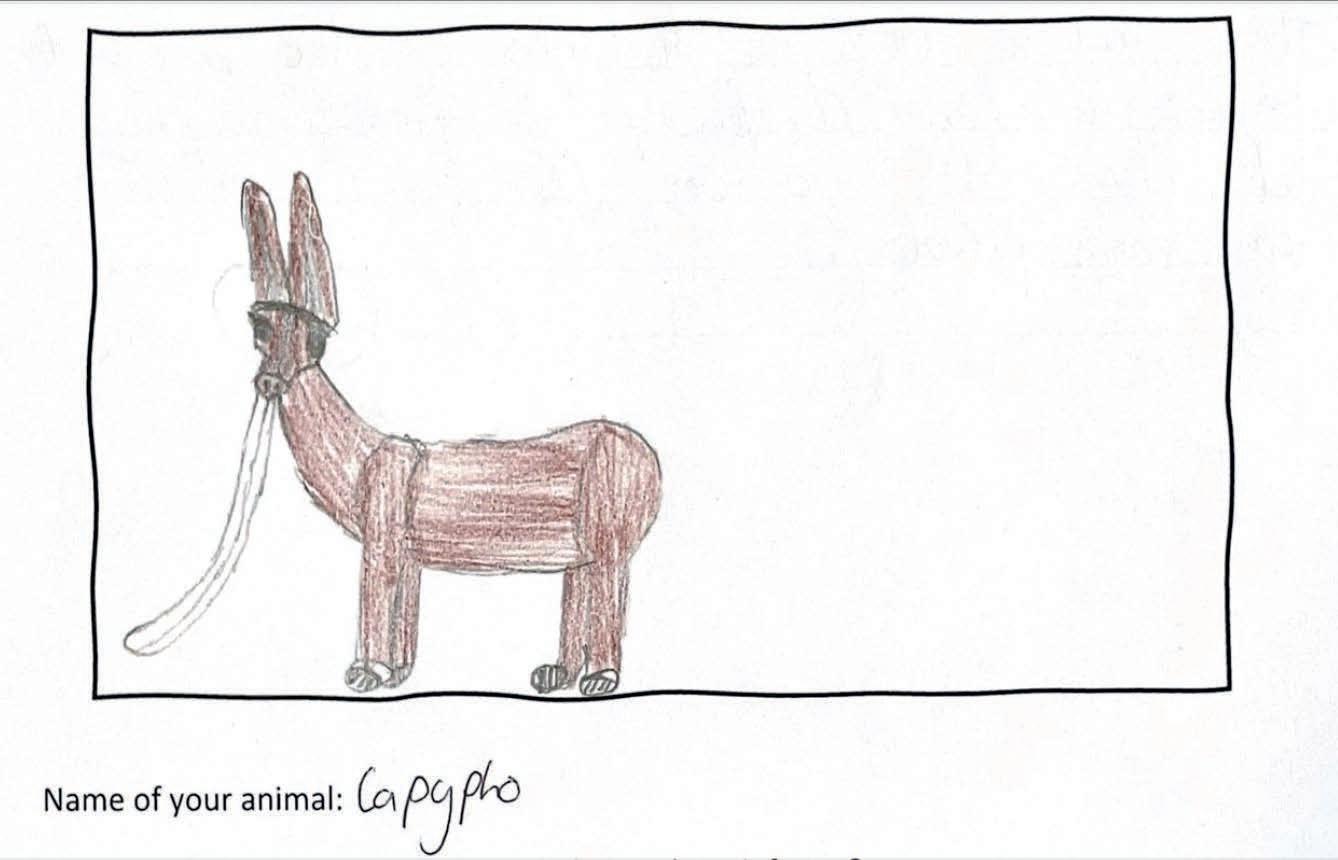
Moving across the globe Year 8 students’ journey has taken them to South America this term. Exploring Brazil, they have been learning about its physical environment and the natural resources it possesses. We then took a dive into the Amazon Rainforest, exploring the different layers in the foliage and the types of animals that live there. We had a class competition to create a new animal with adaptations to allow it to live in the rainforest and with some creative entries such as the Capypho, Green and Mogan (see right)! An incredibly important part of our planet, we also looked at the threats that deforestation presents to the Rainforest and why we depend on it so much for some many of our everyday items.
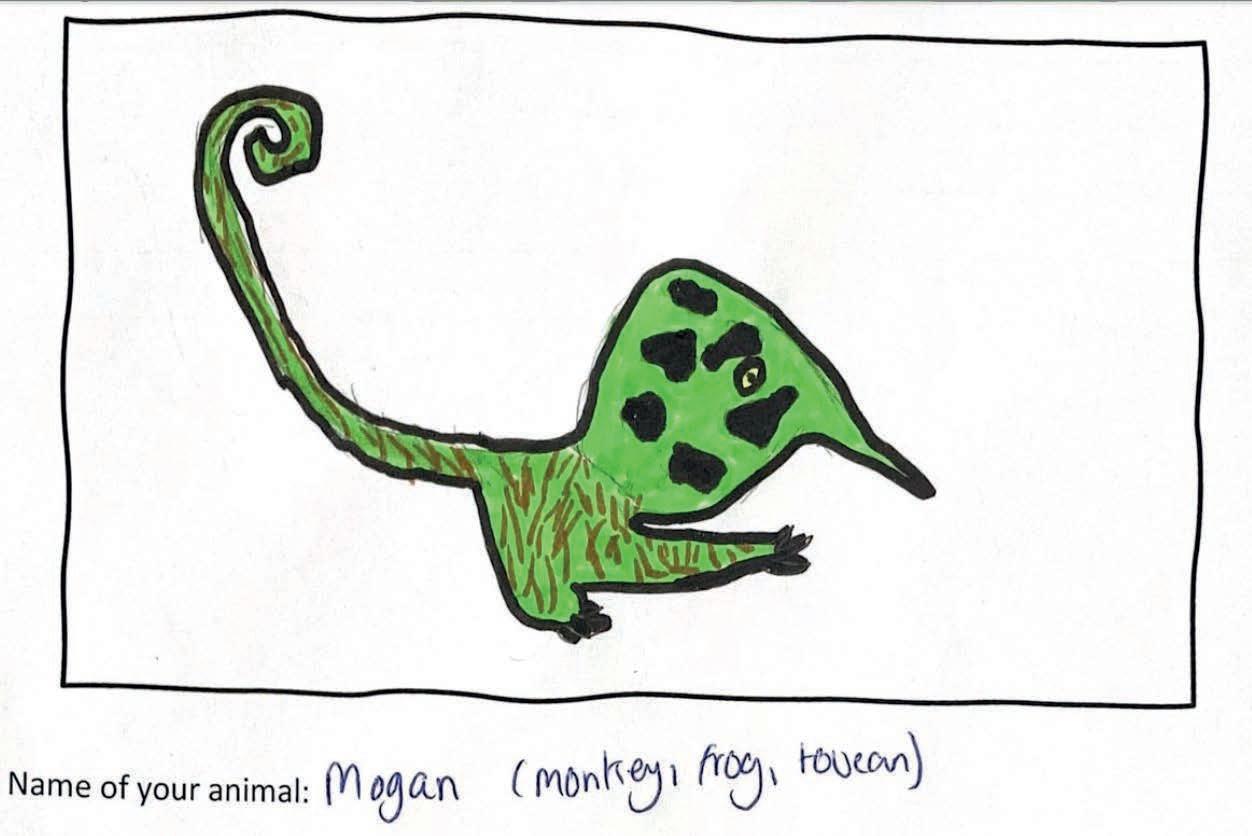
Year 9 – Conflict Geography
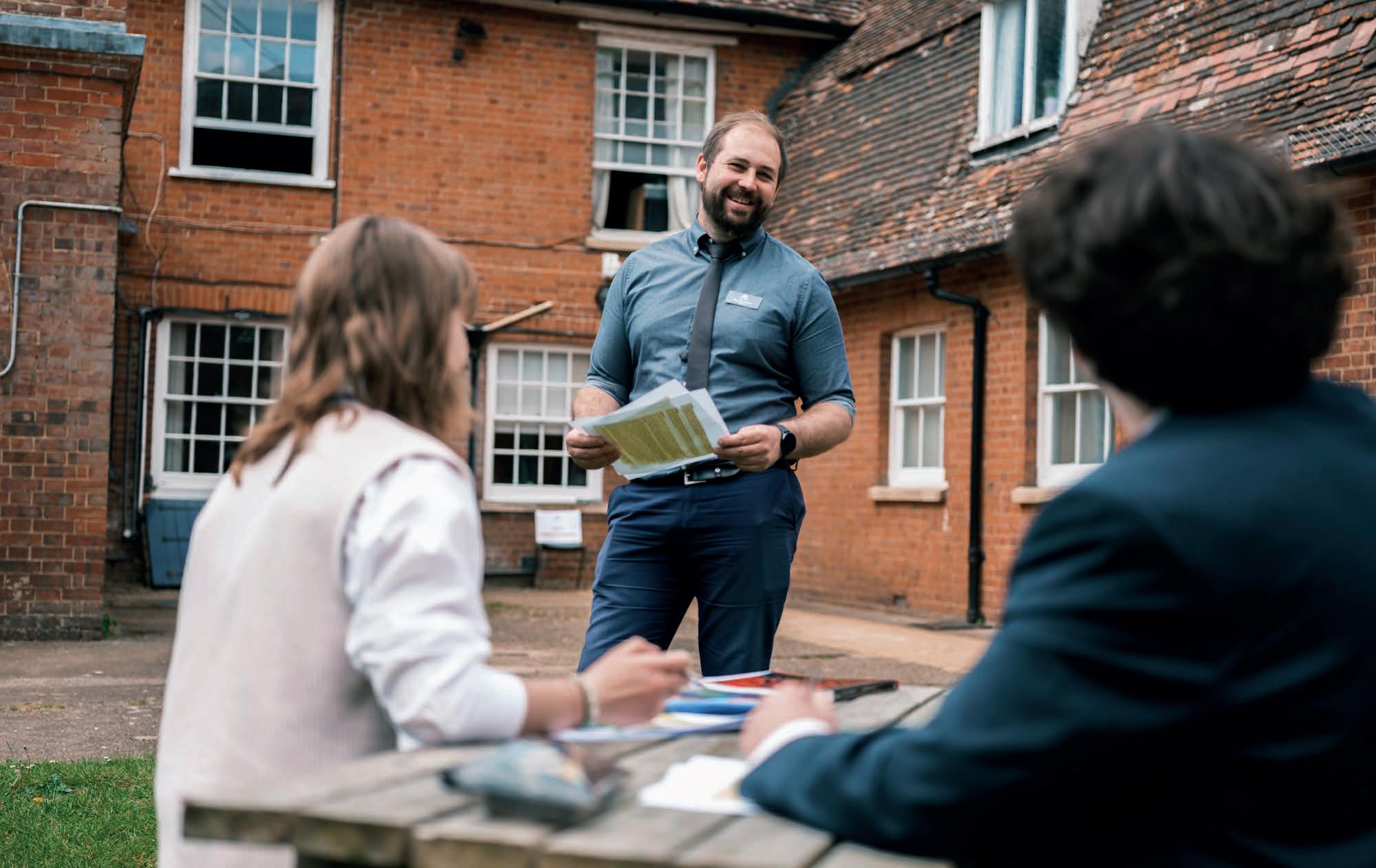
The Ilisu Dam. Somalian Pirates. Blood Diamonds. Child Soldiers. Year 9 have been exploring different sources of conflict across the world. From conflict over water and who owns the rights to rivers to modern day piracy and the impact it has on global trade. Blood diamonds provided an opportunity for students to reflect on whether they know where the items they use and buy actually come from and how they are sourced. Finally child soldiers was a sobering reminder that whilst in the UK all children are able to be children and get an education, this is not true for many young people in Sierra Leone who get caught up in war.










